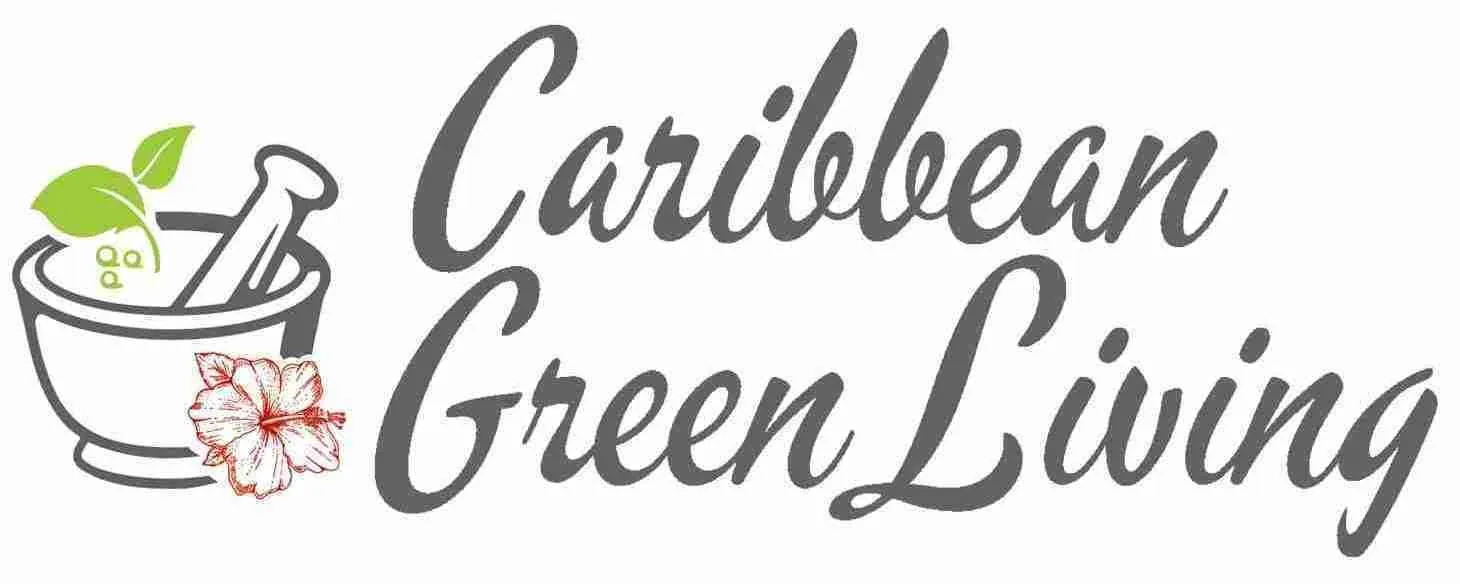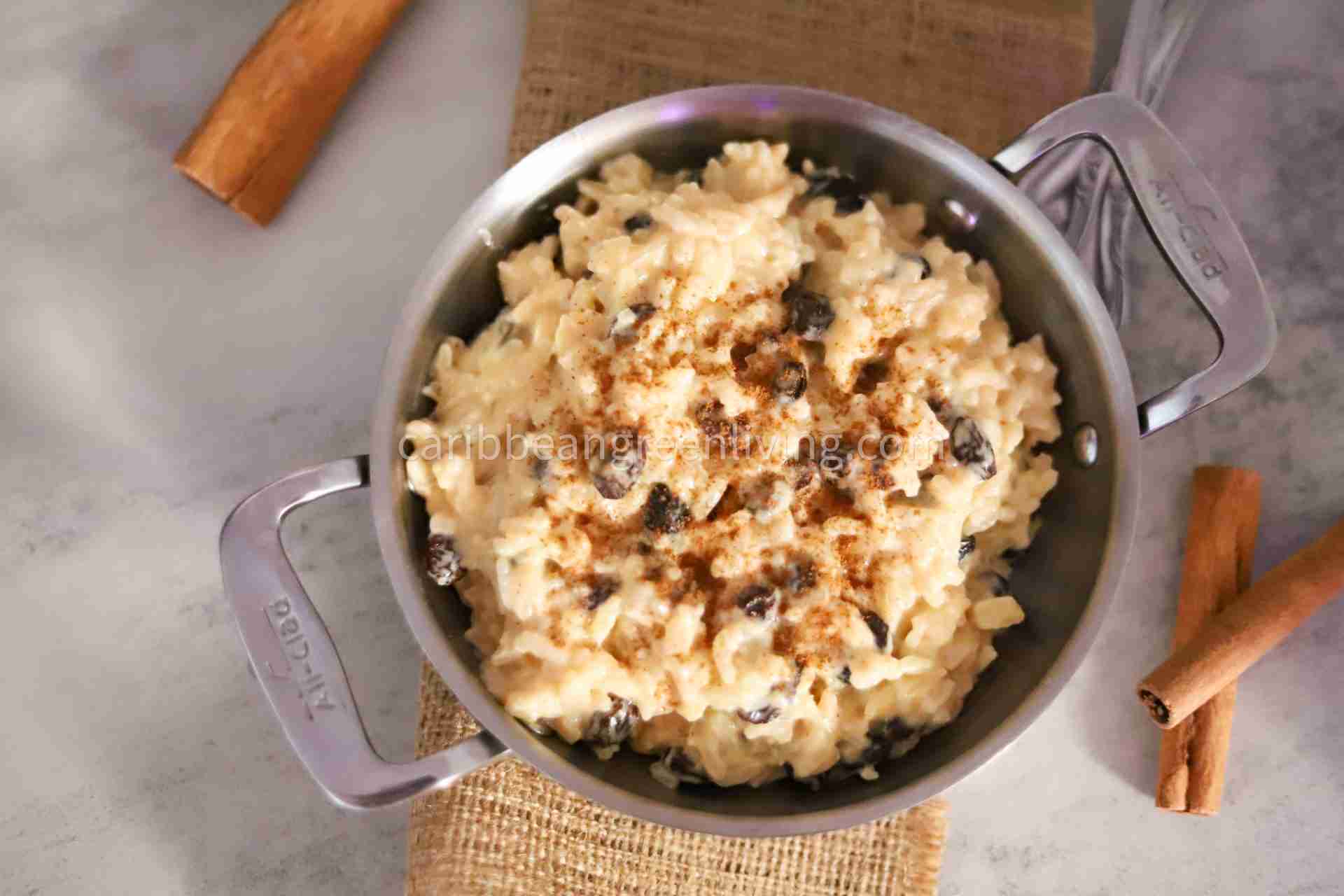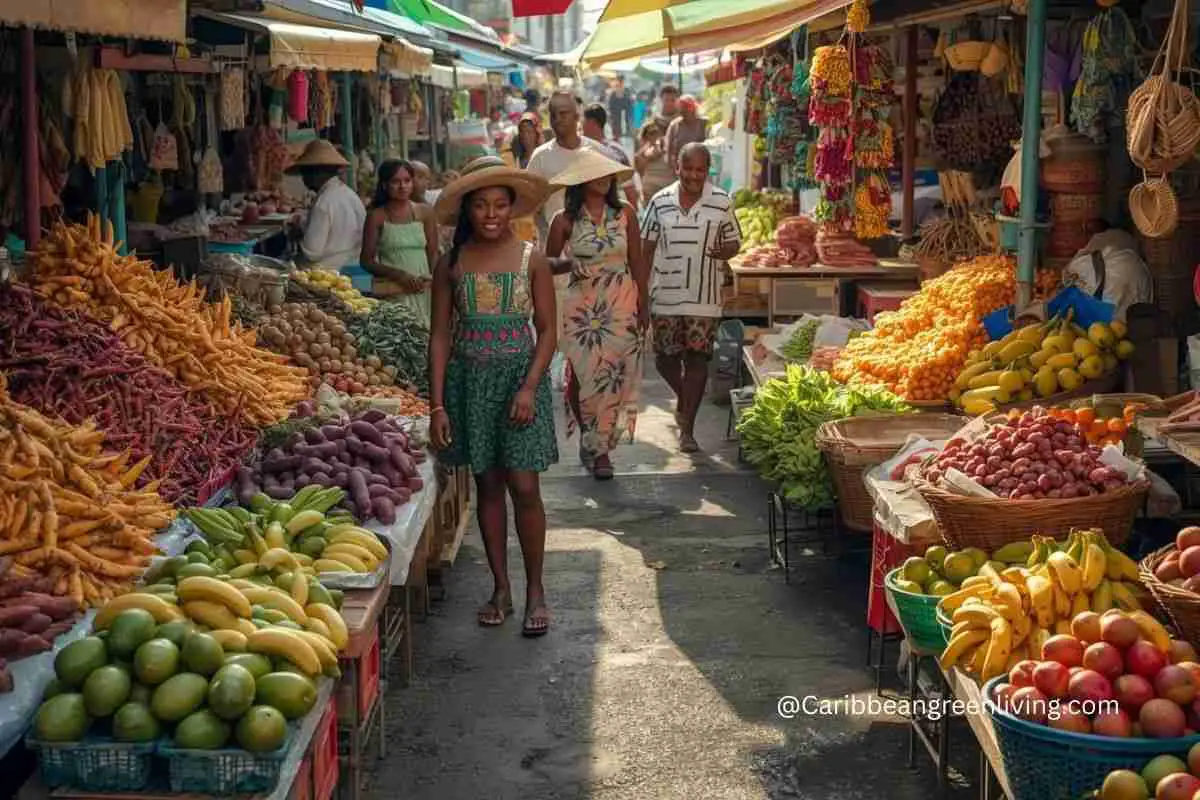Exploring Caribbean Heritage: How Food Preserves Our Ancestry
Food is one of the most powerful storytellers of culture — and in the Caribbean, it speaks volumes. From the aroma of garlic sizzling in a pan to the comfort of a family meal shared on a Sunday afternoon, our dishes do more than fill our bellies. They tell the story of who we are, where we come from, and how love and resilience have flavored our lives.
In this post, I’m diving into how Caribbean heritage food preserves our ancestry, shaped by Haitian traditions, family meals, and the lessons passed down from one generation to the next. It’s a story rooted in memory, flavor, and the beauty of never forgetting where we came from.
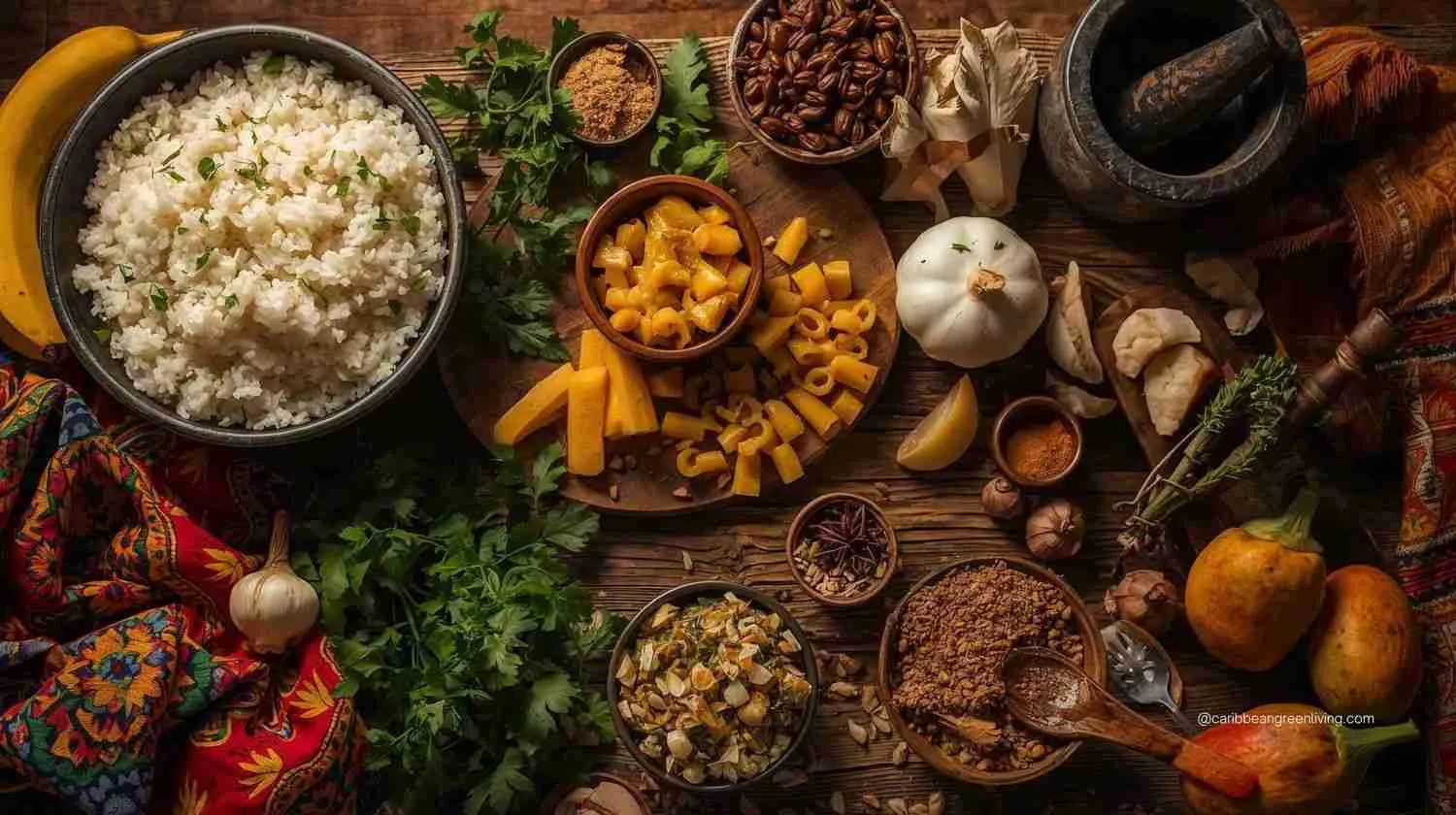
The Taste of Memory
In the Caribbean, food isn’t just what’s on your plate — it’s a living memory. Every pot of rice and beans, every sizzling pan of epis-seasoned meat, every bite of macaroni au gratin carries the stories of the people who came before us. Our dishes whisper tales of resilience, adaptation, and love — seasoned by history, stirred with pride, and served with a side of family tradition.
For many of us, Caribbean heritage food is the thread that ties generations together. It’s how we learn who we are — not through textbooks, but through taste.
Lessons from the Kitchen
I learned to cook around the age of nine. Yes, we had helpers who cooked and cleaned for the whole family, but my mother and aunt were determined that I would know my way around the kitchen. They believed that being independent meant knowing how to feed yourself — and others — with heart and skill.
My first dish? White rice. Simple, right? Except, if you grew up in a Haitian household, you know there’s nothing simple about rice. I learned that you always season it — with salt, garlic, maybe scallions or onion — because even plain rice deserves flavor. You want it so good that you wouldn’t mind eating it alone, no sos pwa (bean sauce), no meat — just rice and soul.
Of course, skipping meat in my family was practically a crime. We’re a clan of meat lovers — skip one meal without it, and you’d be met with endless lectures about “real food.” LOL
My second culinary victory was Haitian Macaroni au Gratin — a creamy, cheesy, baked perfection that taught me patience and the joy of creating something indulgent. The silky béchamel, the bubbling cheese… even as a kid, I knew this was love made edible.
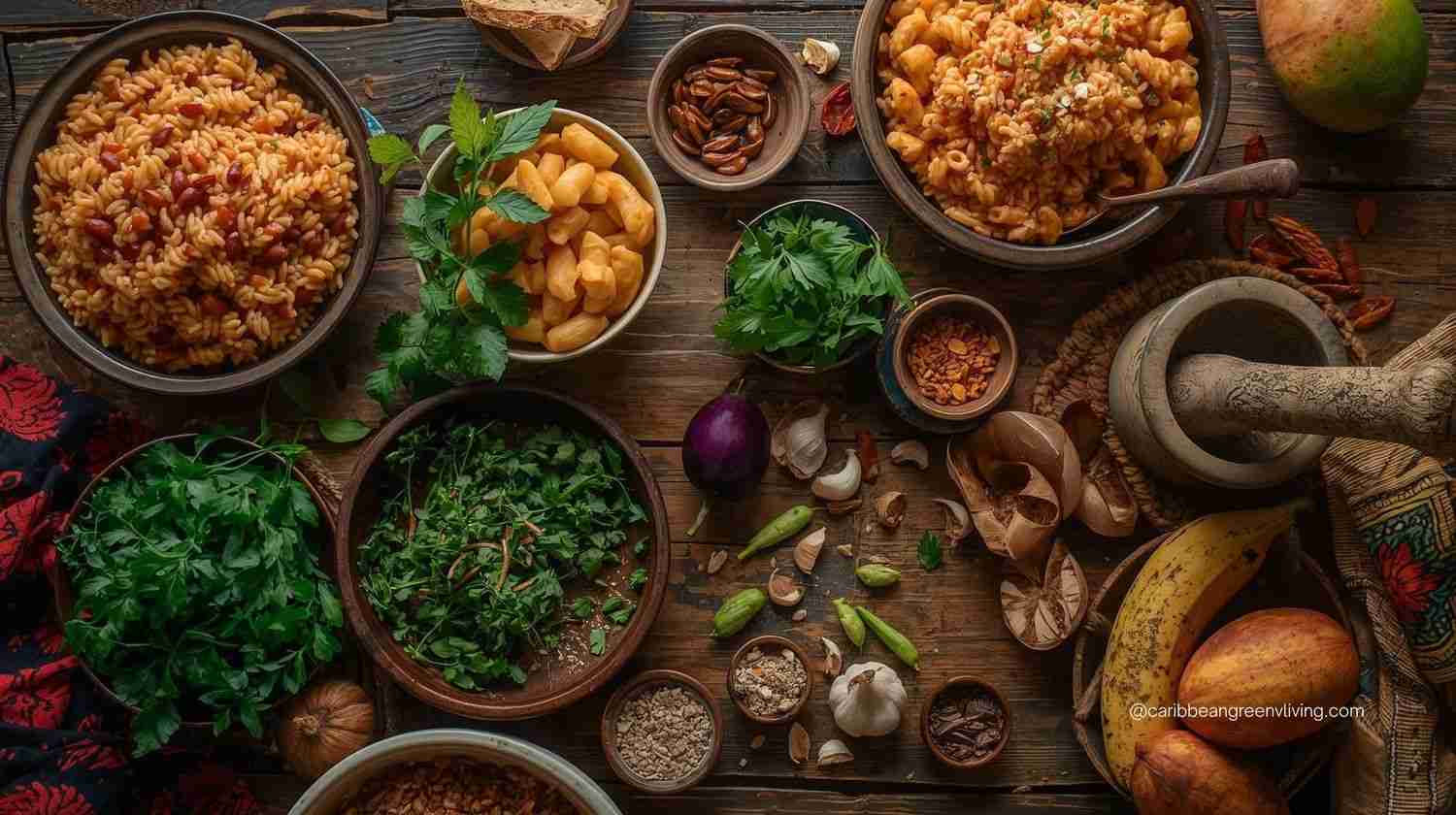
More Than Recipes — A Cultural Legacy
Across the Caribbean, our family meals are the ultimate storytellers. Each ingredient has roots — from the African spices brought through resilience, to the French, Spanish, and Indigenous influences that shaped our cooking methods.
These ancestral recipes are our identity. A bowl of soup joumou on New Year’s Day isn’t just comfort food — it’s a symbol of freedom and remembrance. A pot of rice and beans reminds us of community. A jar of Haitian Epis connects us to the hands that have pounded herbs and spices for generations.
Even everyday staples, like those in the Top 10 Caribbean Pantry Staples You Should Stock, are more than just ingredients — they’re survival stories. They represent migration, resourcefulness, and the way we’ve learned to create abundance out of simplicity.
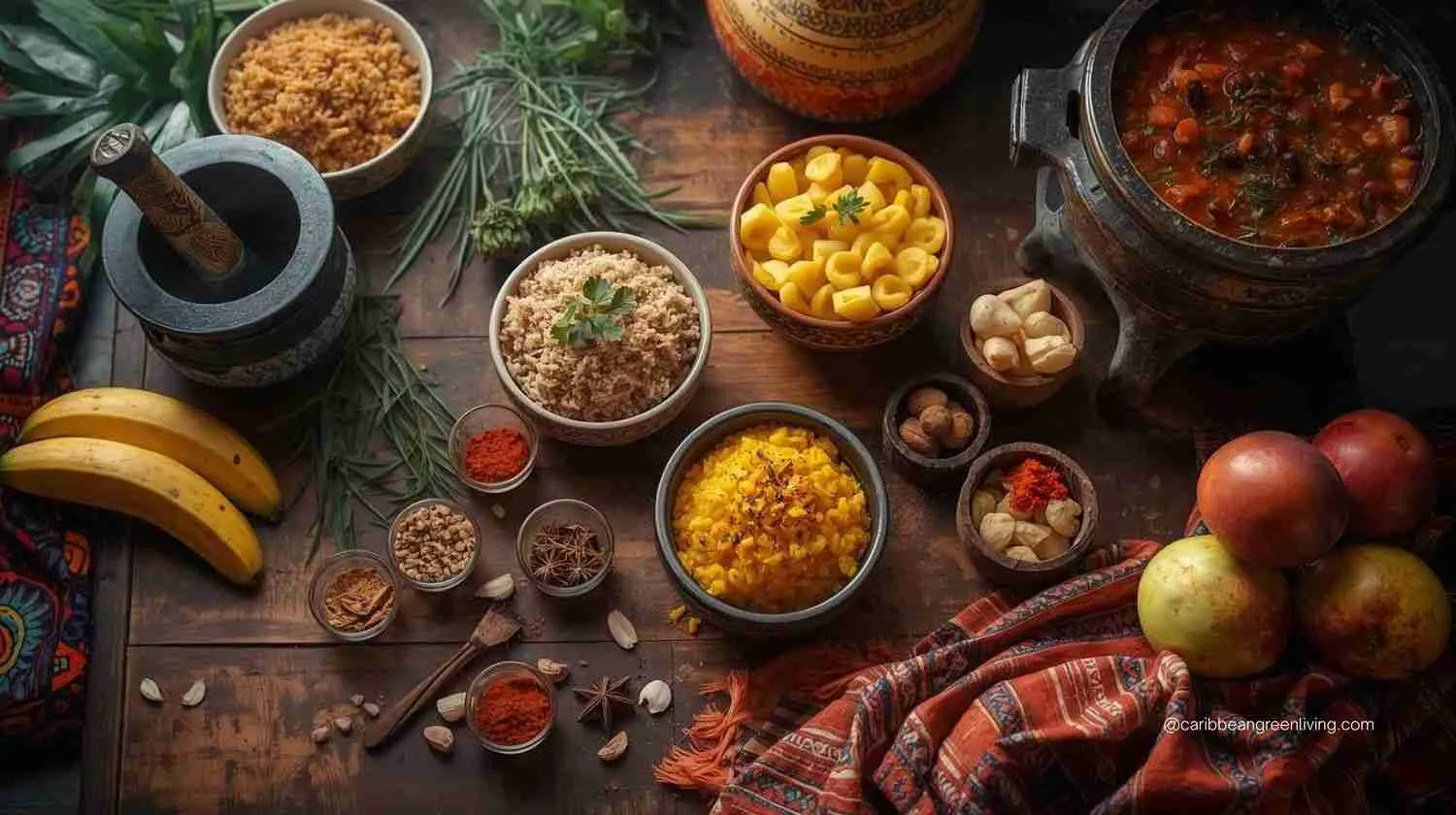
Passing the Spoon Forward
Cooking, for me, became a bridge between past and present. When I stir epis into a pot or bake macaroni au gratin, I’m not just making food — I’m continuing a legacy. These dishes connect me to my ancestors, to my mother’s laughter in the kitchen, to the rhythm of Sunday meals and family chatter that fills a Caribbean home.
Our heritage lives in the way we cook, share, and teach. It’s how we preserve identity in a world that often asks us to assimilate. So when I pass a recipe to my younger relatives, I’m not just sharing instructions — I’m sharing history.
Because food, especially Caribbean food, is how we remember who we are.
More to Explore
- What is Epis and Why Every Caribbean Kitchen Needs It
- Top 10 Caribbean Pantry Staples You Should Stock
- Haitian Macaroni au Gratin
Reference
- UNESCO – Intangible Cultural Heritage: The Art of Caribbean Cuisine: https://ich.unesco.org/
- BBC – How Food Shapes Our Identity: https://www.bbc.com/future/article/20151118-how-food-shapes-our-identity
- National Geographic – The History of Caribbean Cuisine: https://www.nationalgeographic.com/travel/article/caribbean-cuisine
